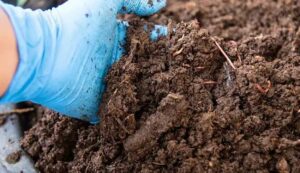Organic Fertilizers: Prepare these 5 types of organic fertilizers at home by adopting these easy methods
Organic Fertilizers: Nowadays, organic gardening and farming are becoming more and more popular. This helps to preserve the environment in addition to providing us with fruits and vegetables free of chemicals. Organic manure is required if you also want to cultivate organic veggies at home. The good news is that it’s simple to make at home.

Learn how to make five simple organic fertilizers at home!
1. Compost from kitchen waste
The simplest and least expensive method is to make compost from organic waste from the kitchen.
Ingredients: Tea leaves, eggshells, vegetable and fruit peels, and leftover food.
Method: Fill a big container with kitchen trash and fill it with dirt. Continue to stir it every three to four days. It will take two to three months for this compost to be ready.
2. Compost made from cow urine
A great organic fertilizer that both nourishes and shields plants from pests is cow urine.
Ingredients: 10 liters of water and 1 liter of cow pee.
Method: Combine water and cow pee, then let it sit for two to three days. The plants should then be sprinkled with this mixture.
3. The banana Fertilizer Peel
Potassium and phosphorus, which are vital minerals for plants, are abundant in banana peels.
Ingredients: water and banana peels.
Method: Roughly chop banana peels and either bury them in the ground or soak them in water to create a solution that you can then apply to the plants.
4. Fertilizer with Green Tea
If you drink green tea, instead of discarding the leftover tea bags or leaves, use them as fertilizer.
Ingredients: Leaves or bags of green tea.
Method: Irrigate the plants by burying green tea bags in the ground or combining them with water. This contributes to the soil’s increased fertility.
5. Remaining Rice Water in the Kitchen
Plants may benefit greatly from the water that remains after washing or cooking rice.
Rice Wash Water is one of the ingredients.
Method: Pour the cooled rice water straight into the plants. It contains nutrients that fortify the plants’ roots.
A few crucial pointers
- Remember that you shouldn’t combine waste items like plastic, glass, or metal while creating compost.
- Check the prepared compost carefully to make sure it has fully decomposed before usage.
- Only use homemade compost on plants that are organic.

